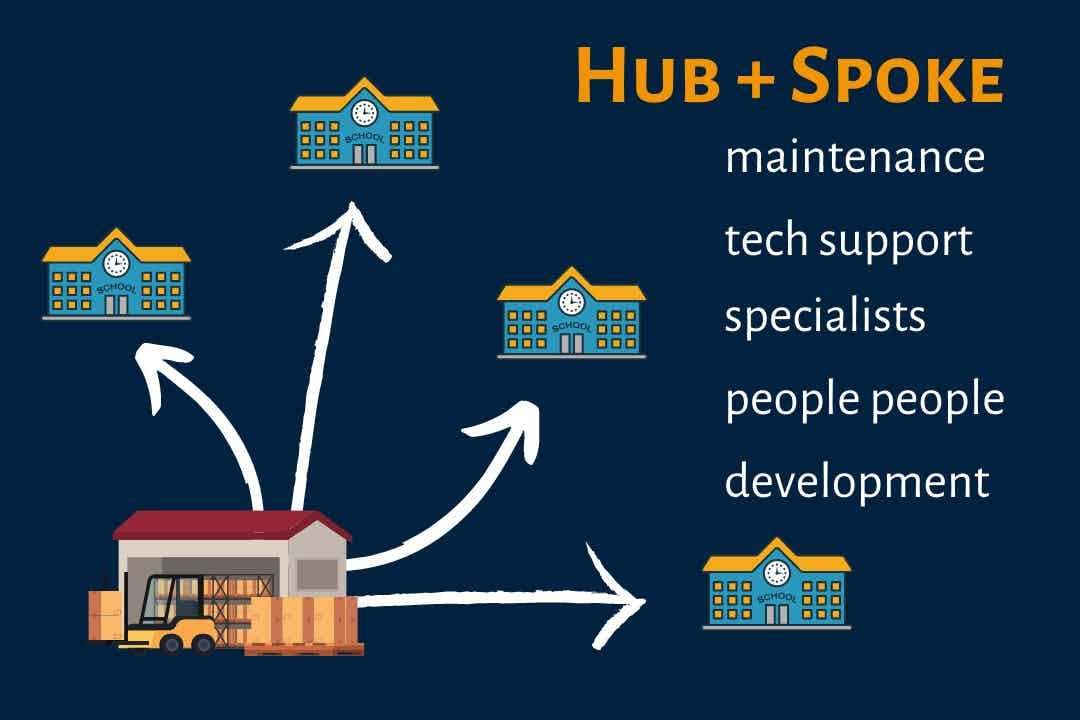
Our Hub And Spoke Model

Reaching Another 40,000 Students
TechLit's next major goal is to onboard another 100 schools, which will introduce over 40,000 students to digital skills. To do that, we will be opening many more hubs across rural Kenya.
What's a Hub?
A hub is an office and a warehouse. It's where computers donated to TechLit are received, refurbished and prepared for the classroom. It's also where our educators meet, train and plan.
Over the past few decades, countless organizations have donated used computers to schools, hospitals and businesses.
Most of the time, they go to great use! Computers can be absolutely transformative to organizations who are prepared to train their people, integrate software into their operations, and maintain hardware and software.
Sometimes, computer donations are left unused. Until 2021, I had heard stories of donations being used at home (essentially stolen) by staff, never being repaired or updated, and simply collecting dust in the corner. But in 2021 I saw some examples with my own eyes.
With our hub-and-spoke model, we ensure effective use by design. Nothing has been stolen or skimmed to-date. We ensure that donations are used regularly in the classroom, maintained and replaced as soon as possible.
Why It Works
Effectively maintaining IT assets requires a whole team, but schools who are just coming online cannot afford their own IT team. That's why we have one hub service many schools at once. We've also found that when educators meet often, they're able to resolve issues more effectively. Our hub serves as a meeting place as well as a tech center.
Computers Are Maintained
TechLit hubs are essential to keeping our program running. To make computer classes as simple as possible, TechLit owns the computers. This gives us the responsibility to update, repair, replace and dispose of the computers, rather than each school individually.
Educators Get Tech Support
At every TechLit hub, there is a local tech support team. They are close to the schools they service, so that they can support educators and students when issues arise. Having tech support nearby also enables us to monitor and improve the software we use in class.
Specialists Inspire Learning
TechLit hubs are where specialist educators are based. Specialists rotate between the schools of a hub. They teach self-efficacy by inspiring students to take charge of their own learning. Specialist educators introduce students to creative outlets like music production, 3d art and game programming, so that students are intrinsically motivated to create content with computers.
People People Make Happy People
One TechLit hub can service dozens of schools, which employs many dozens more people. With so many people, hubs take on the responsiblity of hiring, training and taking care of TechLit staff.
Communities And Schools Are Involved
TechLit hubs are esentially the single point of contact between TechLit and the schools we service. Hub leaders maintain relationships with community, school and government leadership in the area.
About The Author

Tyler Cinnamon is a American programmer and entrepreneur. He started TechLit Africa with Nelly Cheboi in 2018 to disrupt poverty with used IT devices.